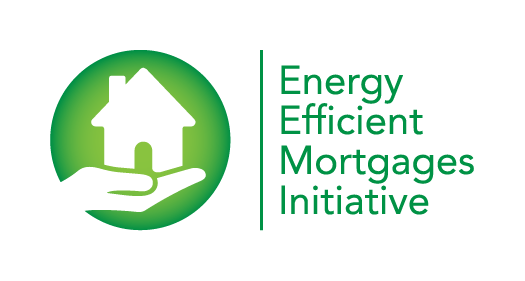
What valuers tell banks about energy efficiency: a snapshot of current practices
By Zsolt Toth, External Affairs & EU Liaison Manager, Europe RICS
Lenders rely on valuations as part of the risk assessment process of offering loans. When deciding whether to make a mortgage offer, lenders take into account, along with other factors, both the customer’s ability to make the payments and the advice provided by the valuer on the quality and market value of the property being offered as security against the mortgage loan. The role of the valuer is to supply advice and an estimate of the market value (MV) based on market evidence applied to an appropriate valuation methodology. Current prevailing practice for secured lending is that the valuer will not be instructed specifically about the energy rating of the property, however this is beginning to change as lenders are now asking for more information in relation to energy efficiency.
A survey currently being carried out among valuers and credit risk departments of significant European banks intends to gather market insights about the extent property features are typically considered to have an impact on securing the loan. The first, high level findings are presented below with the aim to stimulate further discussions among lenders and valuation professionals.
A diverse picture
The feedback received reflect the variety and cultural diversity of real estate and mortgage markets in Europe. The basis of any valuation, including the leeway of the valuer to include an assessment of energy efficiency and sustainability impacts, depends on both, the purpose for which it is being prepared as well as the regulatory framework within which the valuation is being carried out. For example, if a valuation based on market value according to Red Book standards is being prepared, the valuer would be expected to consider and comment on sustainability-related building features. However, this would not be the case if it were a valuation based on market value according to the German valuation order; here the valuer would only be expected to consider and comment on energy efficiency issues. Whereas a valuation based on mortgage lending value according to specific national valuation regimes might not even require the valuer to comment on any of those sustainability features.
Critical to the energy efficiency mortgages initiative is to understand what the underlying internal processes are within the financing institutions, who instructs the valuer and at what point of the mortgage origination process, as well as what is the weight placed on the valuer’s report. It should also be noted that in most European countries there are legislative and regulatory constraints on residential lending including different rules regarding both the basis and method of valuation to be applied.
Energy efficiency and value
One of the positive trends noted was that current valuation instructions already include requests to comment on energy efficiency. More than half of the major European banks participating in the survey instruct their valuers to consider the potential impact of the energy efficiency rating of the property (usually EPCs) with notable exceptions which go even further to include actual energy performance and wider environmental impacts. Energy efficiency features can also be picked up by valuers when doing physical inspections as 9 out of 10 banks require valuers to comment on the building fabric and the overall condition of the property. It is important to emphasise however, that a mortgage valuation is to inform the lender, not the borrower. The reality is that many borrower rely on a mortgage valuation when in fact they would be better served by purchasing their own report on a property to include environmental issues.
This is an encouraging finding which enables the EeMAP consortium to continue working closely with banks on developing valuation checklists and instructions to reflect energy efficiency in the valuation process in a more thorough and standardised way. It remains to be further explored how energy efficiency is accounted for in the risk assessment further down the underwriting stream. The replies suggest that it is a mix of traditional factors and value drivers that determines the creditworthiness of a property however, age and condition of the building envelope and technical equipment will count to a large degree.
Data availability
Rapid technological advances in most sectors, such as Internet of Things, Blockchain and Big Data, are responsible for an ever-growing avalanche of data and yet, despite this trend, a lack of data and information in the built environment real estate sector may be increasingly perceived as a tangible risk factor by those underwriting lending decisions. The survey looked at what building related data is being collected and stored in-house by banks, who provides this information and whether it is shared and used during the mortgage underwriting process. Core indicators which are routinely collected, considered and used in analysis and estimates include location, age, construction costs, transaction prices and tax values. Interestingly, energy performance and renewables have only been mentioned sparingly. Other environmental performance indicators such as carbon emissions, water, waste and adaptability to climate change feature even lower on the radar of both valuers and lenders, especially qualitative indicators such as user comfort and health.
Availability of data poses a significant challenge for valuation professionals as regardless of whether market evidence exists or not, it remains the responsibility of the valuer to take into account all those quality attributes which might have an impact on value. In the context of insufficient empirical evidence, the weighting of these attributes (especially in the case of qualitative indicators) remains with the professional judgement of the valuer. In this sense, improving the availability and consistency of data is an area which needs to be urgently addressed in order to reinforce the positive link between building performance and reduced risk.
Looking forward
EeMAP is quickly approaching a pilot phase to be launched early next year. In order to equip banks and their valuers with the necessary tools and skills to better recognise the impact of energy efficiency, a workshop was held on the 24th of November in Brussels to validate findings on existing valuation and risk assessment practices.
The ability of valuers to advise on the impact of energy efficiency is a key piece for lenders to calculate mortgage affordability without increasing the credit risk and thus allowing additional funds to be provided to the consumer. A better understanding of the relationship between energy efficiency and value is also important for a more robust and risk sensitive property rating in the loan portfolio of banks.
Sitemap
Copyright © Energy Efficient Mortgages Initiative


The project DeliverEEM has received funding from the European Union’s LIFE 2023 programme under grant agreement No.101167431. The EeMAP, EeDaPP, EeMMIP projects have received funding from the European Union’s Horizon 2020 research and innovation programme under grant agreements No. 746205, No. 784979 and No. 894117 respectively
Privacy Overview
| Cookie | Duration | Description |
|---|---|---|
| cookielawinfo-checkbox-analytics | 11 months | This cookie is set by GDPR Cookie Consent plugin. The cookie is used to store the user consent for the cookies in the category "Analytics". |
| cookielawinfo-checkbox-functional | 11 months | The cookie is set by GDPR cookie consent to record the user consent for the cookies in the category "Functional". |
| cookielawinfo-checkbox-necessary | 11 months | This cookie is set by GDPR Cookie Consent plugin. The cookies is used to store the user consent for the cookies in the category "Necessary". |
| cookielawinfo-checkbox-others | 11 months | This cookie is set by GDPR Cookie Consent plugin. The cookie is used to store the user consent for the cookies in the category "Other. |
| cookielawinfo-checkbox-performance | 11 months | This cookie is set by GDPR Cookie Consent plugin. The cookie is used to store the user consent for the cookies in the category "Performance". |
| viewed_cookie_policy | 11 months | The cookie is set by the GDPR Cookie Consent plugin and is used to store whether or not user has consented to the use of cookies. It does not store any personal data. |

